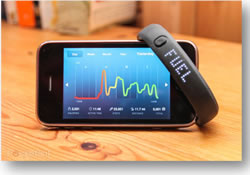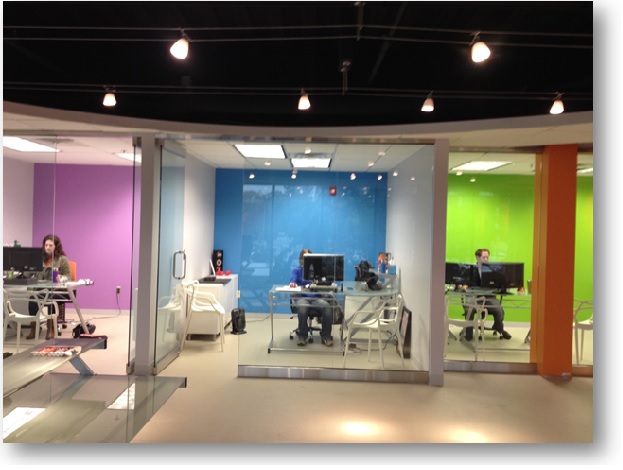Maybe it started at CES back in 2009 when Ford CEO Alan Mulally remarked in a memorable keynote, “We are a car company but we are learning how to think like an electronics company.” At the time, many inside and outside the auto industry probably wondered exactly what he was talking about.
 Now nearly five years later, every automotive company is running at breakneck speed to redefine media and electronics in the cars and trucks we will drive in the future.
Now nearly five years later, every automotive company is running at breakneck speed to redefine media and electronics in the cars and trucks we will drive in the future.
We’re devoting two days to this topic this week here in Detroit, as executives from Ford, General Motors, Chrysler, Toyota, Panasonic, and Pioneer gather to collaborate and compare notes with their counterparts from the radio and advertising sectors at DASH.
And today, brand after brand – whether in retail, services, or media – are making that same discovery. The ways in which consumers interface with technology has become a dominant force whether you work in real estate, sports, or radio.
A recent Bloomberg Businessweek article in their “Technology” silo addressed Nike’s transition to tech. You may think of them as simply a sports equipment clothing retailer, but their recently introduced FuelBand puts them in an entirely different class. FuelBand now competes with similar tech trackers like Fitbit and Jawbone, placing Nike squarely in a battle with tech companies that are providing performance metrics for fitness devotees.
And now Apple has become a part of the Nike story as the new iPhone will have sensors so that consumers can use their smartphones to track their Fuel progress. And of course, Nike has an iOS app (but not one for Android, claiming that the huge number of handsets in that operation system makes it difficult to provide a great user experience). The new generation of iWatch type devices that are already on the market will spur a whole new category of electronic personal tracking gear.
Nike is typical of companies that continue to move into the space, but do so with some degree of discomfort. In many ways, traditional media companies and brands have been fighting that same battle.
But there’s no stopping consumers who continue to be amazed, surprised, and fascinated with ways in which gadgets make their lives easier and more fun. And the allure of getting preferred media wherever/whenever continues to put pressure on brands to step it up and make their content as ubiquitous and gadget agnostic as possible.
Of course, you could make the claim that every company is a media company, based on the fact that so many brands that simply used to make products or provide services now have their own radio stations, video channels, and other offerings.
It’s an amazing intersection of media and technology, and radio brands find themselves in the middle of these conversations. As we continue to hear the word “radio” bandied about, broadcasters will have to continue to redefine their offerings. Live and local remain a differentiator, but only if the quality, service, and experiences continue to amaze and delight.
And the technology better be in place to support it.
Electronics, gadgets, software, and consumer connectivity are no longer a Silicon Valley thing. Technology centers are springing up all over America, in diverse markets throughout the “flyover states.”
In many ways, our company has made that turn with the creation of jacAPPS, our digital backbone created by Tim Davis in the mid-‘90s, and the addition of a strong social media presence via the hiring of Lori Lewis in 2011. The infusion of digital has been the equivalent of “youth serum” for our organization, enabling us to enter circles that have typically eluded legacy media brands.
Any consultancy providing advice to radio brands that doesn’t have this type of infrastructure in place may be coming up short in advising their clients in 2013. It is no longer about just music sorts, scheduling logs, writing promos, and conducting aircheck sessions. Whether its talent coaching, brand building, or simply refining and adapting the way stations connect with consumers, technology has changed the face of media consulting. It impacts every department in our stations.
“How can you help me get ratings?” is still a big question.
“How can you help me survive and thrive in the technology environment?” is an even bigger one.
We’re all technology companies.
- Media And Technology In 2025: Believe It Or Not! - April 18, 2025
- In Radio, You Just Never Know - April 17, 2025
- The Secret To Making A Great Podcast (And Great Radio) - April 16, 2025





Leave a Reply